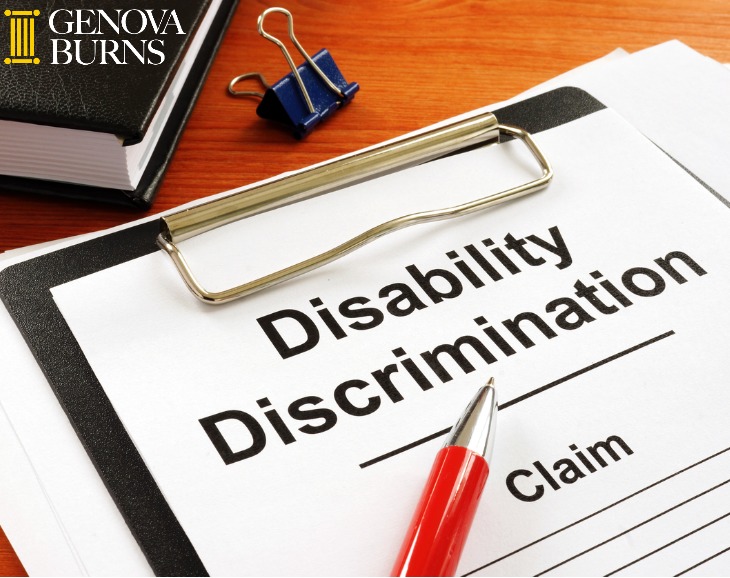Is There a Problem Officer?: NJ Appellate Division Affirms Dismissal of Retired Police Officer’s Disability Lawsuit
May 31, 2022
On May 23, 2022, the New Jersey Appellate Division upheld a trial court’s dismissal of failure to promote, hostile work environment, and retaliation claims brought by a retired New Jersey State Police Trooper. In Stonnell v. State of New Jersey, the Appellate Division affirmed the trial court’s dismissal of the trooper’s New Jersey Law Against Discrimination (NJLAD) claims, finding that he failed to set forth facts sufficient to establish that the New Jersey State Police violated the law with respect to his employment.
Facts
Michael Stonnell began his employment as a trooper with the New Jersey State Police in 1993. In 2006, Stonnell requested and was granted a transfer to the New Jersey State Police’s Marine Bureau Station in Atlantic City.
In Summer 2013, Stonnell was diagnosed with skin cancer. Following his diagnosis, in September 2013, Stonnell was instructed by a Sergeant to contact the Medical Services Unit to request a medical leave of absence, which Stonnell refused. As a result, Stonnell’s supervisor initiated an internal investigation into Stonnell’s conduct for disobeying a direct order, which ultimately resulted in Stonnell receiving a written reprimand.
While the internal investigation was pending, a promotional opportunity became available for the position of Sergeant. However, Stonnell was ineligible for promotion due to the pending internal investigation.
Additionally, in November 2013, Stonnell was transferred to the Special Operations Section of the Marine Bureau, in the Infrastructure Protection Unit, located in West Trenton. The Infrastructure Protection Unit was located further from his home. Stonnell remained stationed in the Infrastructure Protection Unit until he took a “stress leave” in July 2014, and subsequently retired on January 1, 2018.
Trial Court’s Decision
On January 29, 2015, Stonnell filed a lawsuit against the State of New Jersey, the New Jersey State Police and several individual State Police Officers. In his lawsuit, Stonnell asserted hostile work environment and failure to promote claims under the NJLAD based on his disability and his age; failure to promote and retaliation in violation of the Workers’ Compensation Law; as well as multiple violations of the New Jersey Constitution.
In a comprehensive decision, the trial judge granted dismissal of Stonnell’s claims, finding that Stonnell’s allegations in support of his hostile work environment and retaliation claims were insufficient. The trial judge, however, did not independently analyze Stonnell’s failure to promote claim.
Appellate Division’s Decision
Following the dismissal, Stonnell appealed the trial court’s ruling regarding his NJLAD claims only, insisting that he had set forth sufficient facts to support his claims for failure to promote, hostile work environment and retaliation, based on his disability, and that the trial judge failed to properly consider the evidence.
With regard to Stonnell’s failure to promote claim, a two-judge appellate panel found that: (1) Stonnell was not promoted due to the then-pending internal investigation, a legitimate non-discriminatory reason; (2) Stonnell failed to provide evidence that someone of similar or lesser qualifications was promoted in his place, which is required to bring a claim for failure to promote; and (3) Stonnell’s claim that he was innocent was insufficient to establish that the investigation was an excuse, and the actual reason he was not promoted was because of his disability.
With regard to Stonnell’s hostile work environment claim, the panel found: (1) Stonnell’s generalized accusations that he was subjected to hostility and disparate levels of attention because of his leave use was not severe and pervasive enough to establish that he was subjected to a hostile work environment; and (2) none of the alleged conduct was based directly on Stonnell’s disability.
Finally, with regard to Stonnell’s retaliation claims, the panel found that: (1) for the reasons stated above, the internal investigation could not be considered an adverse employment action; (2) Stonnell’s transfer to the Infrastructure Protection Unit in November 2013 was also not retaliatory, as he suffered no reduction in rank or pay, and his transfer was spurred by his Doctor’s recommendation that he refrain from working outdoors, a legitimate, non-discriminatory reason; and (3) Stonnell’s argument that this transfer to a more distant location was “punishment” was insufficient to establish that the decision to transfer him was based on his disability.
Bottom Line
New Jersey courts give considerable weight to an employer’s legitimate, non-discriminatory reasons for their actions. When faced with allegations of discrimination, hostile work environment, and/or retaliation by an employee or former employee, an employer must be prepared to defend its actions and those of its individual supervisory employees. You will often find that, in these situations, it is your word against theirs. Employers must take steps to protect themselves, which includes ensuring that all actions taken with respect to any employee are done in accordance with applicable law, and appropriately documented.
For more information regarding the Appellate Division’s decision and best practices for defending claims of discrimination, hostile work environment, or retaliation, please contact John C. Petrella, Esq., firm Partner and Employment Law & Litigation specialist via email here or Latiqua M. Liles, Esq. in the firm’s Employment Law & Litigation and Human Resources Counseling & Compliance Practice Groups, via email here, or call 973.533.0777.
Tags: Genova Burns LLC • Latiqua M. Liles • John C. Petrella • NJLAD • New Jersey • Employment Law & Litigation • Human Resources Counseling & Compliance • Discrimination • hostile environment • Retaliation

